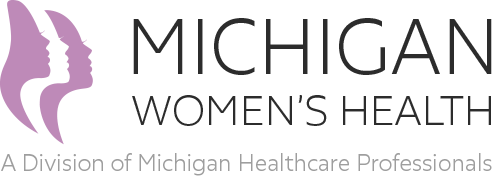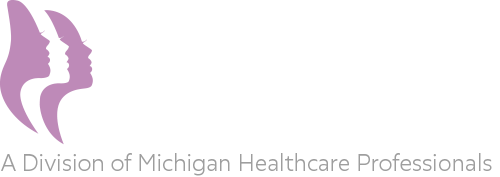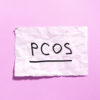I have many patients every week that come in concerned they have PCOS. Some are worried because they can’t get pregnant or they think they have cysts on their ovaries or their period is irregular. Let’s clear up some misconceptions about PCOS, what it is and what you can do about it.
What is Polycystic Ovarian Syndrome (PCOS)
As the name implies, it is a syndrome, meaning there can be multiple symptoms making up the syndrome and you many have all or some of the symptoms. This also means that although there is the “typical” PCOS woman, there are also several variations to PCOS. And lastly, this means there is not one diagnostic test (i.e. there is not one blood test) that can diagnose PCOS, but it is more a diagnosis of exclusion (that is, ruling out any other disease process that may be causing your symptoms before declaring you have PCOS).
Here is a definition of PCOS from John Hopkins: polycystic ovary syndrome (PCOS) is a condition in which the ovaries produce an abnormal amount of androgens, male sex hormones that are usually present in women in small amounts. The name polycystic ovary syndrome describes the numerous small cysts (fluid-filled sacs) that form in the ovaries. However, some women with this disorder do not have cysts, while some women without the disorder do develop cysts.
There has been much discussion about changing the name of PCOS to something that describes the syndrome better, since the main disorder has to do with an increase in androgen levels and not ovarian cysts. Because of the name that is currently used, there is a lot of confusion about what PCOS really is and how it affects your body.
What causes PCOS?
This is a hard question to answer – no one has a clear idea. It seems that it runs in families. It also is found in women that are insulin resistant, which is when your body doesn’t respond to insulin and help glucose into your cells, thus causing increased blood sugars. So if your body can’t use insulin well, it builds up in your body and can then cause androgen levels to increase. Obesity can increase insulin levels, thus worsening PCOS symptoms.
What are the symptoms of PCOS?
As I said before, you may have some of these symptoms and not others. The most common symptoms are irregular periods, acne, hair growth and weight gain.
- Missed or irregular periods. Some women only have 1 or 2 a year with PCOS
- Ovaries with many tiny cysts. These cysts are usually a millimeter or 2 and may enlarge the size of the ovary a little. These are not cysts that you can feel.
- Excessive body hair. This can be on the breasts, abdomen, face.
- Acne
- Weight gain, especially around the belly
- Infertility
- Male pattern baldness
- Dark or thick skin patches around neck, armpits, or under breasts
- Skin tags around the neck or armpit
How is PCOS diagnosed?
A history and physical is usually the most helpful in diagnosing PCOS. In addition, a pelvic ultrasound can look at your ovaries and detect cysts. And blood work is used mainly to rule out any other disorders that may cause your symptoms. Although PCOS is due to higher androgen levels, your total male hormone levels (like testosterone) may be normal, but what is free (not bound) in the blood stream is higher than normal and that is what causes the symptoms.
How is PCOS treated?
First of all, PCOS cannot be “cured.” Basically treatment goals are based on your symptoms, decreasing longterm risks and whether you want to be become pregnant.
- Lifestyle changes. Mainly this pertains to diet and exercise. By eating a healthy diet and being physcially active, you can decrease your symptoms and lose weight.
- Diabetes medication. This may help reduce insulin resistance, decrease androgen levels and help your periods become more regular
- If you are desiring pregnancy, you may need medication to help you ovulate. These medications can be oral or injections and need to be monitored closely to not over stimulate your ovaries. A diabetes medication may also be added to aid in ovulation.
- If you are not interested in pregnancy, the birth control pill can be helpful in binding up the “free” androgens in your bloodstream and thus lowering your androgen levels and symptoms associated with that including acne and hair growth. This will also help regulate your cycle so you have a period monthly.
If I have PCOS, what other health concerns are there?
If you have PCOS, you are at increased risk for these other health issues:
- Infertility
- Diabetes
- Hypertension
- Heart disease
- Uterine cancer
When should you seek medical attention?
If you have any concerns about PCOS, typically irregular periods, weight gain, and acne, you should see your doctor. In addition, if you are having difficulty getting pregnant, especially with irregular periods, you may need assistance getting pregnant. But don’t lose hope, you can get pregnant with PCOS!
Bottom line, although you can’t be cured, there is a lot of help available to manage symptoms of PCOS, so see your doctor!








